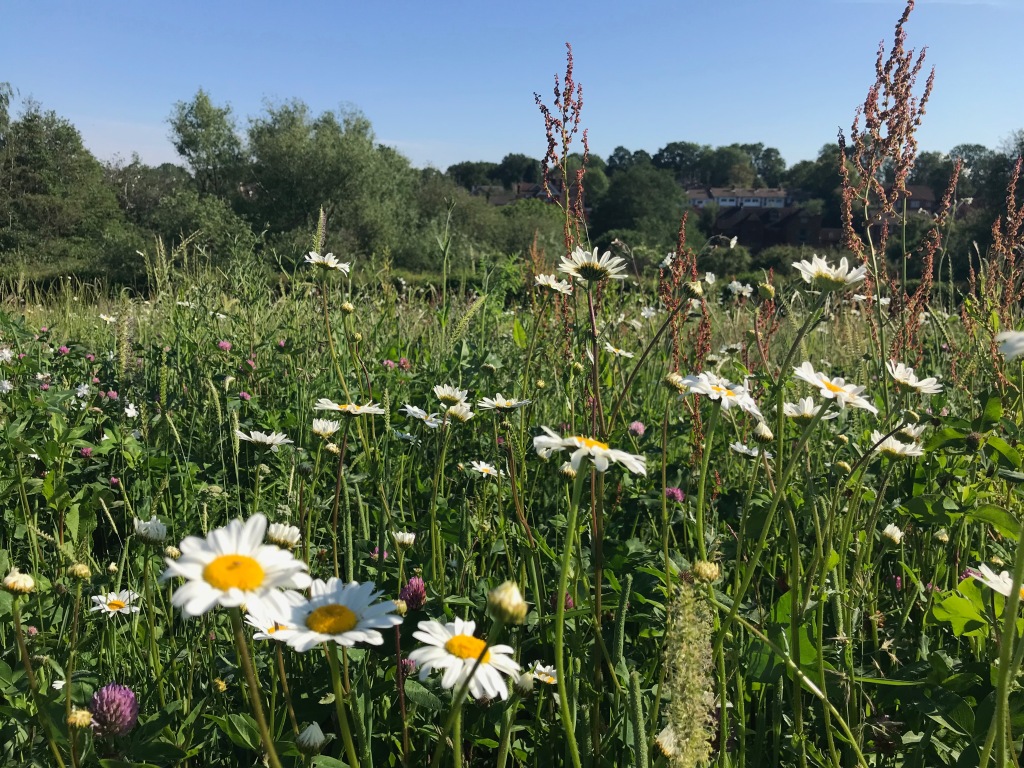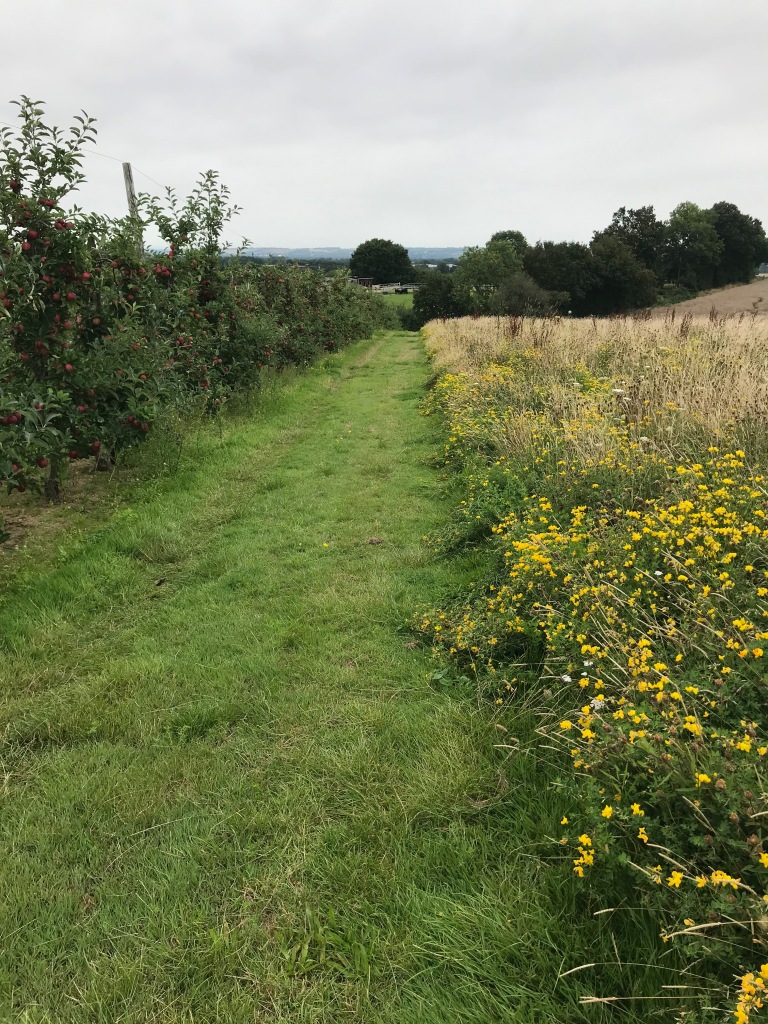In a recent study, Charlotte Howard and her colleagues report that floral strips can be a practical and effective way to encourage natural pest control in commercial apple orchards.
Floral margins can deliver a measurable increase in yield of undamaged fruit. We found that by using flower margins in conventional orchards, farmers were able to significantly reduce damage by a problematic global pest: the rosy apple aphid.
The flower margins had palpable benefits including:
- A lower percentage of apple trees with aphid fruit damage (80% reduced to 48% in a year of severe infestation).
- The potential to gain approximately 2,400 kg/ha of undamaged fruit in a year of severe infestation.
- Reduced occurrence of fruit damage at distances up to 50 m from the orchard edge during a year of severe infestation, and from distances up to 10 m during a year of milder infestation.
- A reduced spread of rosy apple aphid on each infested apple tree (27% of shoots reduced to 18%).
What does this mean?
Flower strips are gaining interest in the agricultural world as a sustainable crop-protection tool. This research offers much-needed evidence that perennial flower strips can be a realistic, low maintenance tool to support natural pest control for sustainable fruit production and reduce reliance on chemical pest control.
Flower strips in crop fields can provide a haven for natural predators and parasites of pests, which in turn can minimise pest infestations. In addition they could provide benefits for pollination and biodiversity.
Management
The flower strips were 2-6 years-old and were sown with four low-growing fine grass species and 15 perennial flowering species. They were approximately 18 m across (1635 m2) and were cut short once annually. Our research suggests that for rosy apple aphid control, a single flower margin could be sufficient to sustainably aid suppression of the pest in orchards.
Read the full article “Perennial flower margins reduce orchard fruit damage by rosy apple aphid, Dysaphis plantaginea (Homoptera: Aphididae)” in Journal of Applied Ecology.


